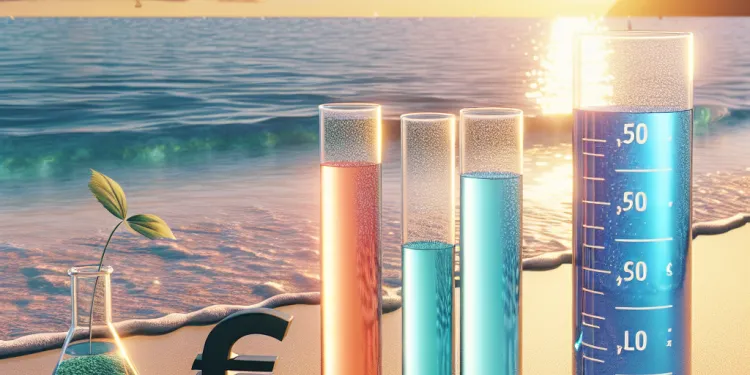
Find Help
More Items From Ergsy search
-
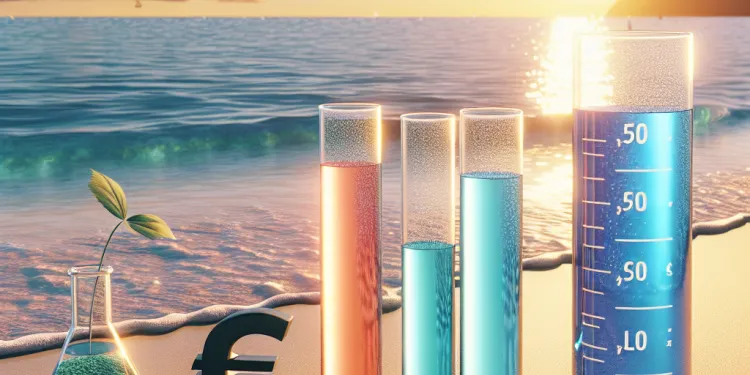
Are some UK beaches rated better for water quality than others?
Relevance: 100%
-
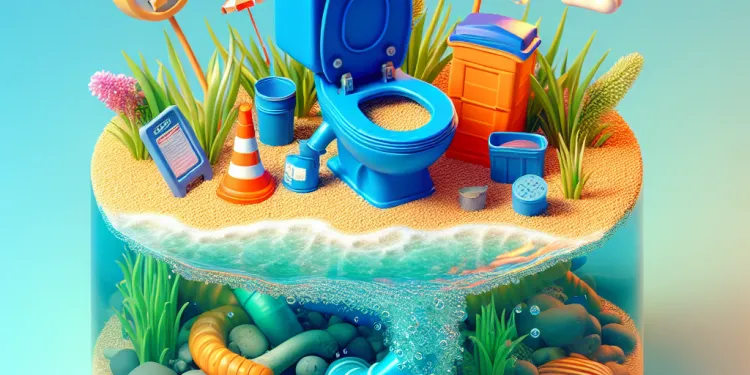
Is sewage a problem on UK beaches?
Relevance: 74%
-
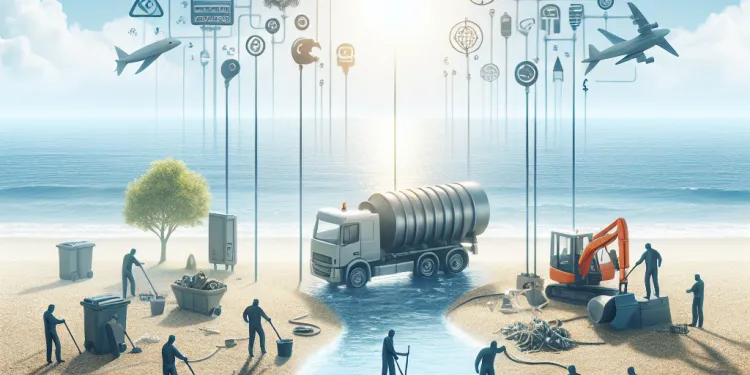
What is being done to address sewage pollution on UK beaches?
Relevance: 68%
-

How can the public find out if a beach has sewage pollution?
Relevance: 67%
-
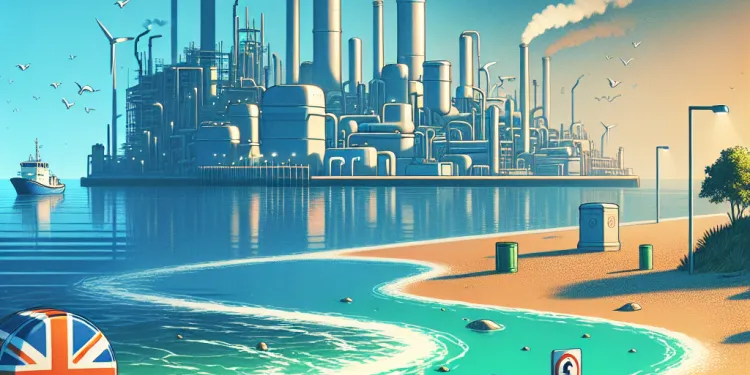
What causes sewage pollution on UK beaches?
Relevance: 67%
-

Are water companies responsible for maintaining water infrastructure in the UK?
Relevance: 35%
-

Who regulates the performance and compliance of UK water companies?
Relevance: 35%
-

What is the role of a water regulator in my claim?
Relevance: 35%
-

How old is the water infrastructure in the UK?
Relevance: 34%
-
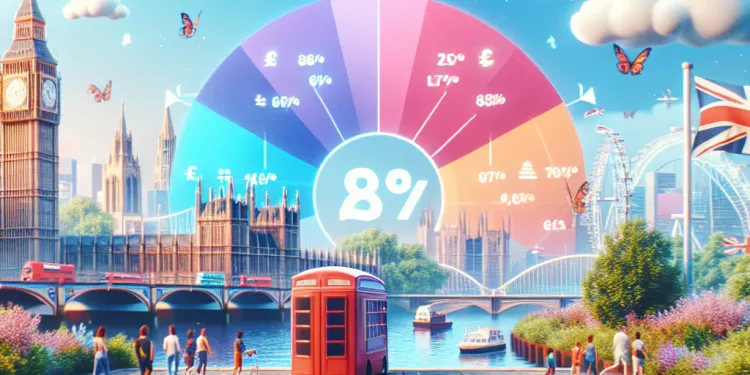
Is UK air quality changing?
Relevance: 32%
-
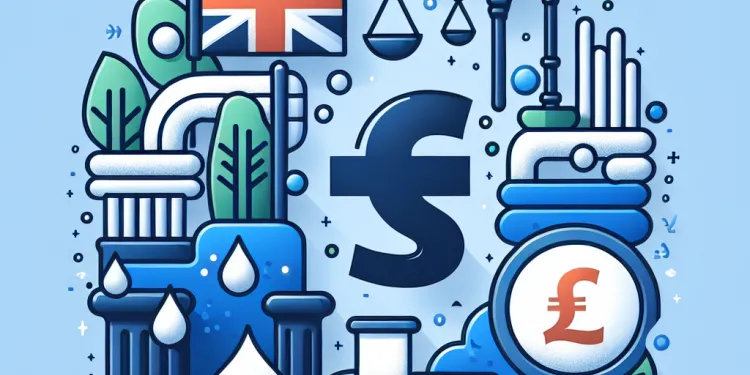
Are there legal guidelines for sewage discharge into UK waters?
Relevance: 32%
-

Do water companies have long-term infrastructure plans?
Relevance: 32%
-

Do water companies have to update the infrastructure?
Relevance: 31%
-
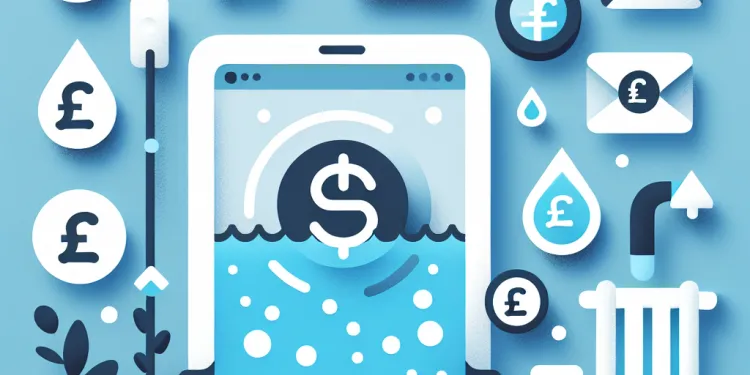
Are there penalties for water companies besides issuing refunds?
Relevance: 31%
-

How are infrastructure priorities determined by water companies?
Relevance: 31%
-
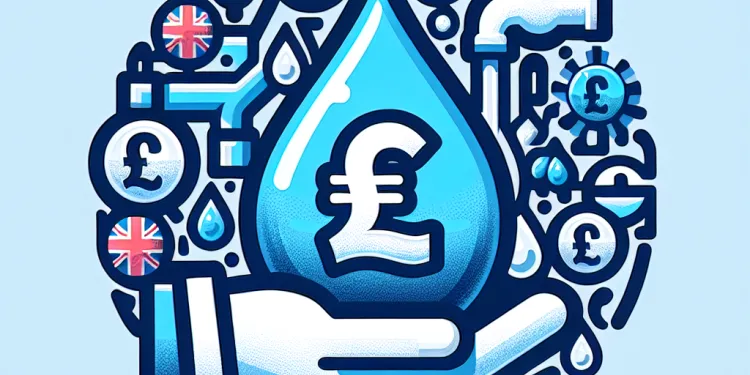
Can individual actions significantly impact overall water loss?
Relevance: 30%
-

What role do water companies play in sewage pollution?
Relevance: 30%
-

What happens if a water main bursts?
Relevance: 30%
-

Are there penalties for not maintaining water infrastructure?
Relevance: 30%
-

Which body is responsible for enforcing refunds by UK water companies?
Relevance: 30%
-

What does water infrastructure maintenance involve?
Relevance: 30%
-
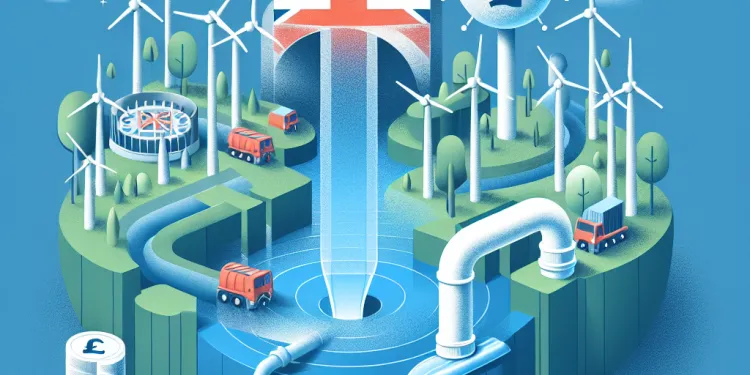
How does climate change affect water infrastructure maintenance?
Relevance: 29%
-
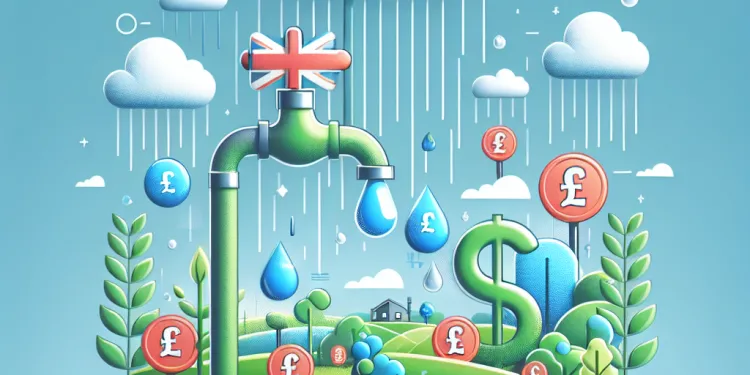
What causes water loss in the UK?
Relevance: 29%
-
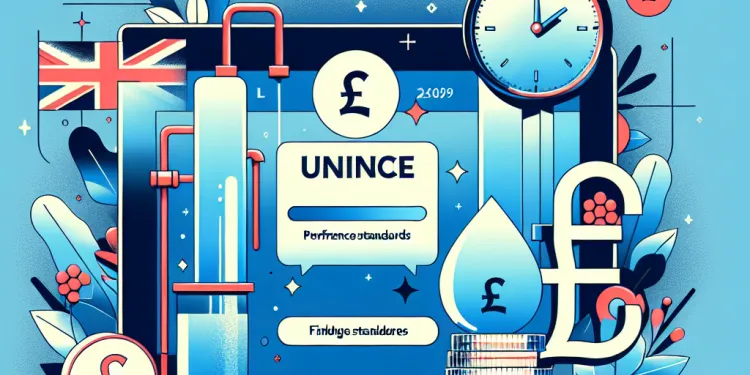
Where can customers find updates on their water company's performance standards?
Relevance: 29%
-
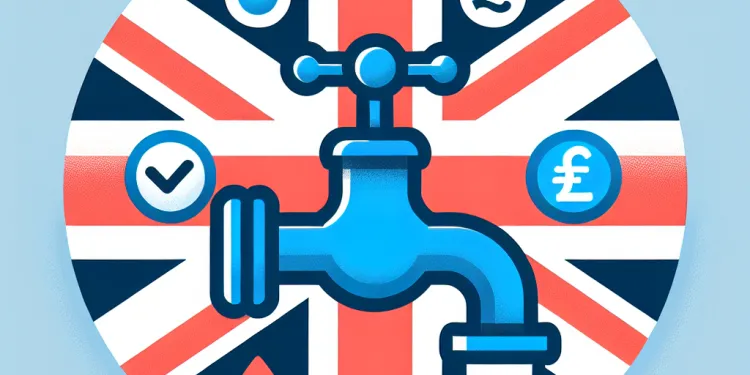
What criteria were used to determine the refunds for UK water companies?
Relevance: 29%
-
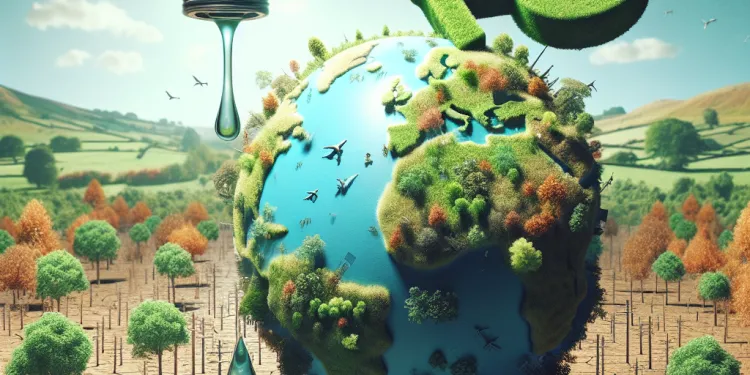
What impact does water loss have on the environment in the UK?
Relevance: 29%
-

How will refunds affect investments towards improving water infrastructure?
Relevance: 29%
-
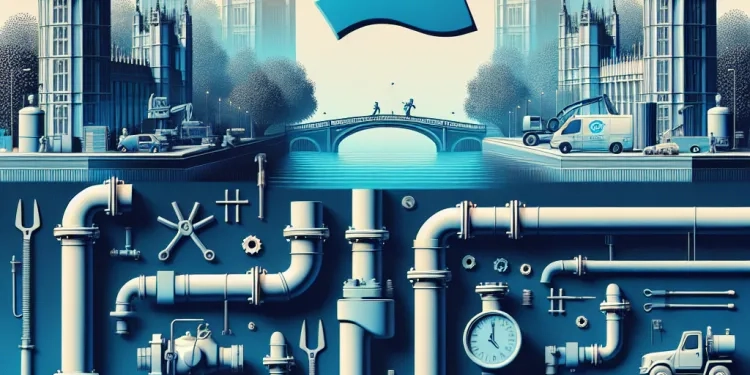
What challenges do water companies face in maintaining infrastructure?
Relevance: 29%
-

How is the quality of live-in care monitored?
Relevance: 29%
-

What is the role of consumers in reducing water loss?
Relevance: 29%
-

Can customers report issues with water infrastructure?
Relevance: 29%
-

Does Thames Water enforce a hosepipe ban more than other water authorities?
Relevance: 28%
-

How many UK water companies are involved in the refund process?
Relevance: 28%
-

Is the video quality of a Ring Doorbell Camera good?
Relevance: 28%
-

How significant is the water loss problem in the UK?
Relevance: 28%
-
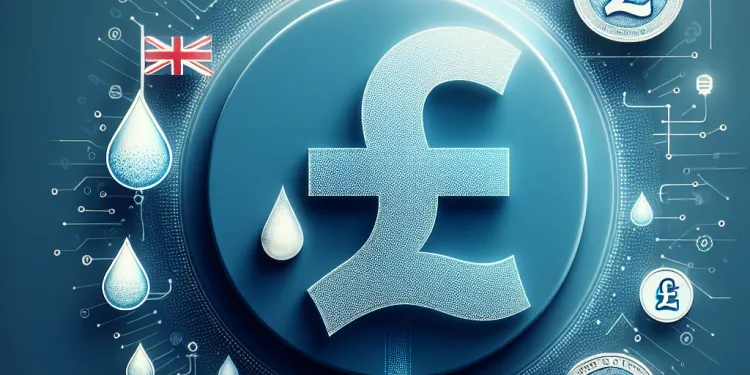
What are the financial implications of water loss for the UK?
Relevance: 28%
-
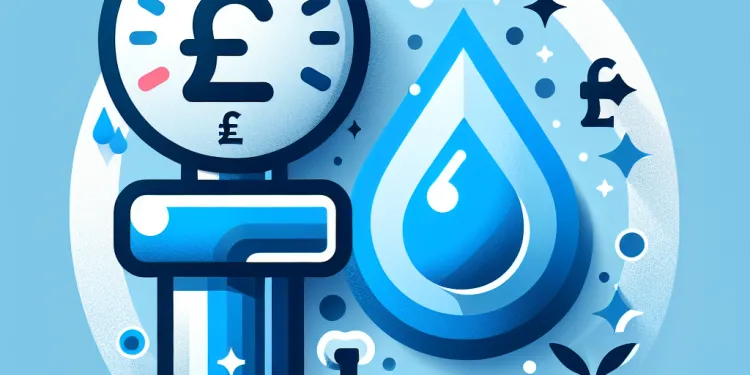
Which UK water companies are going to refund their customers for poor performance?
Relevance: 28%
-

How do water companies fund infrastructure updates?
Relevance: 28%
-

Are school meals inspected for quality and standards?
Relevance: 28%
-

Are there initiatives to improve water efficiency in infrastructure?
Relevance: 28%
Water Quality Ratings of UK Beaches
The United Kingdom is home to a diverse range of beaches, each with its own unique characteristics and environmental conditions. Among the various factors that determine the appeal and safety of these coastal areas, water quality stands as a critical criterion for beachgoers, environmentalists, and local authorities alike. Understanding how some UK beaches are rated for water quality provides insights into environmental health and highlights areas where improvements are needed.Water Quality Standards in the UK
In the UK, beach water quality is primarily assessed according to standards set by the European Union's Bathing Water Directive. This directive classifies water quality into four categories: excellent, good, sufficient, and poor. These ratings are based on the presence of Escherichia coli (E. coli) and intestinal enterococci, which are indicators of fecal contamination. The higher the quality rating, the lower the levels of these bacteria, indicating cleaner and safer water for recreational use.Beaches with Excellent Water Quality
Numerous UK beaches boast excellent water quality, offering clean and inviting conditions for swimming, surfing, and other activities. Many of these can be found along the coastlines of Devon and Cornwall, areas renowned for their stunning natural beauty and rigorous environmental management efforts. For instance, Woolacombe Beach in Devon and Porthminster Beach in Cornwall consistently achieve excellent ratings, making them popular destinations for both locals and tourists.Challenges Facing Some UK Beaches
Despite the overall positive ratings seen in many coastal areas, some UK beaches continue to face challenges with water quality. Factors such as agricultural runoff, urban wastewater discharge, and stormwater can contribute to contamination, particularly following heavy rainfall. Beaches near industrial areas or heavily populated cities may struggle to maintain high-quality ratings. Ongoing monitoring and investment in infrastructure improvements are essential to address these issues and enhance water quality.Efforts to Improve Beach Water Quality
The UK government, along with environmental organizations and local councils, is actively working to improve beach water quality. Initiatives such as constructing better sewage treatment facilities, implementing sustainable farming practices, and setting up real-time water quality monitoring systems are essential steps in this effort. Public awareness campaigns also play a crucial role in encouraging community involvement and promoting best practices that help reduce pollution.Conclusion
While many UK beaches are celebrated for their excellent water quality, ongoing challenges in certain areas require attention and action. Achieving balanced environmental management and continuing efforts to protect and improve water quality are vital to ensure that all UK beaches can maintain their natural beauty and remain safe for public enjoyment.Water Quality Ratings of UK Beaches
The United Kingdom has many different beaches. Each beach is special in its own way. One important thing about beaches is the quality of the water. Clean water is good for people who visit, for nature, and for local leaders. Knowing how beaches in the UK are rated for water quality is important. It helps us understand if the environment is healthy or if it needs improvements.Water Quality Standards in the UK
In the UK, water quality at beaches is measured by rules from the European Union. The rules put water into four categories: excellent, good, sufficient, and poor. These ratings depend on the amount of certain bacteria in the water. The bacteria are called Escherichia coli (E. coli) and intestinal enterococci. They show if the water might be dirty. Beaches with fewer bacteria have cleaner, safer water for fun activities.Beaches with Excellent Water Quality
Many UK beaches have excellent water quality. This means the water is clean for swimming, surfing, and other fun. Lots of these beaches are in Devon and Cornwall. These places are known for their beautiful nature and good work to keep the environment clean. Woolacombe Beach in Devon and Porthminster Beach in Cornwall often have excellent ratings. Many people like to visit these beaches because of their clean water.Challenges Facing Some UK Beaches
Some UK beaches have problems with water quality. Pollution can come from farms, city water waste, and rainwater. Beaches near factories or big cities may find it hard to keep good water quality. Watching the water and fixing problems are important to make these beaches better.Efforts to Improve Beach Water Quality
The UK government and groups that care for the environment are working to make water quality better. They are building better places to treat sewage, using smart farming, and checking water quality all the time. Telling people how to help keep water clean is also important. Everyone can help by learning how to pollute less.Conclusion
Many UK beaches have very clean water, but some still have problems. We need to keep working hard to protect the environment and improve water quality. It is important so all UK beaches can stay beautiful and safe for everyone to enjoy. For more help understanding this, you can use tools like audio readers or apps that highlight words as you read. Talking with someone about what you read can also help.Frequently Asked Questions
Are some UK beaches rated better for water quality than others?
Yes, some UK beaches are rated better for water quality based on regular testing by environmental agencies.
Who monitors the water quality of UK beaches?
The Environment Agency monitors water quality at designated bathing waters in England, while similar agencies do so in Scotland, Wales, and Northern Ireland.
How often is beach water quality tested in the UK?
Beach water quality is typically tested weekly during the bathing season, which runs from May to September, to ensure it meets safety standards.
What criteria are used to rate beach water quality in the UK?
Beaches are rated based on levels of bacteria such as Escherichia coli (E. coli) and intestinal enterococci, which indicate potential pollution.
What are the possible ratings for beach water quality in the UK?
UK beaches can be rated as 'Excellent', 'Good', 'Sufficient', or 'Poor' based on water quality tests.
Where can I find information on water quality for UK beaches?
You can find water quality ratings on the websites of the Environment Agency, SEPA, NRW, and DAERA, or through local councils.
What should I do if I want to swim at a beach with poor water quality?
It's advised to avoid swimming at beaches rated as 'Poor' to minimize the risk of health issues from waterborne bacteria.
Has COVID-19 affected beach water quality testing in the UK?
While there were disruptions in 2020, water quality testing resumed, and regular monitoring continues to ensure public safety.
Do seasonal changes affect beach water quality in the UK?
Yes, heavy rainfall and agricultural runoff can temporarily affect water quality, especially in the spring and autumn.
Are UK beaches ever closed due to poor water quality?
In some cases, public health warnings may be issued, advising against swimming when water quality is insufficient.
What is the Blue Flag award for beaches?
The Blue Flag is an international award given to beaches with excellent water quality, safety standards, and environmental management.
How can I help improve water quality at my local beach?
You can help by reducing pollution, picking up litter, and supporting local conservation efforts to improve beach environments.
Are there mobile apps that provide UK beach water quality information?
Yes, apps like the 'Beach Check UK' provide real-time information about beach conditions, including water quality.
Can water quality affect marine life at UK beaches?
Yes, poor water quality can impact marine ecosystems, affecting fish and other aquatic organisms' health.
Do all UK beaches have the same testing and quality standards?
Most designated bathing beaches have similar testing protocols, but the frequency and detailed standards can vary by region.
Are some UK beaches better than others for water?
Some beaches in the UK have cleaner water than others.
To find out which beaches are the best, you can:
- Check online maps showing water quality.
- Look for signs at the beach.
This helps to know where it is safe to swim and play.
Yes, some beaches in the UK are known for having clean water. These beaches are tested often to check the water quality.
Who checks the water at UK beaches?
Who makes sure the water at the beach is clean?
In the UK, special people check water at beaches.
- The Environment Agency helps check it.
- They make sure it's safe for swimming.
If you need help with reading, try:
- Using a ruler to follow the lines.
- Reading with a friend who can help.
The Environment Agency checks the water at beaches in England to see if it is clean. There are other groups that do the same job in Scotland, Wales, and Northern Ireland.
How often do they check the beach water in the UK?
They check beach water in the UK regularly to make sure it is clean and safe. Usually, they test the water every week during the swimming season. This is when lots of people want to swim and play in the sea.
If you have trouble reading, you might want to use tools like text-to-speech to listen to the words. You can also ask someone to read with you or use simple apps that help with reading.
People check the water at the beach every week from May to September. They do this to make sure it is safe for swimming.
How do people check if beach water is clean in the UK?
People look at different things to see if the water at the beach is safe for swimming. Here are some things they check:
- Tiny Germs: They look for tiny germs in the water. These germs can make people sick.
- Chemicals: They check for bad chemicals that should not be in the water.
- Rubbish: They see if there is any rubbish like plastic floating in the water.
You can use pictures or symbols to help understand this better. If you have trouble reading, you can ask someone to read it to you. Apps that read text aloud can also be helpful.
Beaches are given scores based on how much bad stuff, like germs, is in the water. The germs have names like Escherichia coli, or E. coli for short, and intestinal enterococci. These germs show if the water is dirty.
How Clean is Beach Water in the UK?
Beach water in the UK has different levels of cleanliness. These levels are called ratings.
Here are the ratings:
- Excellent: The water is very clean and good for swimming.
- Good: The water is clean, but not the best.
- Sufficient: The water is okay, but be careful.
- Poor: The water is not clean. It is better not to swim.
You can use pictures, like smiley faces, to help understand these ratings better. You can also ask someone to help explain it to you.
UK beaches are rated by how clean the water is. They can be called 'Excellent', 'Good', 'Sufficient', or 'Poor'.
Where can I find information about water quality at UK beaches?
You can find out how clean the water is by looking online. Check the websites of the Environment Agency, SEPA, NRW, and DAERA. You can also ask your local council for help.
What should I do if the beach water is dirty?
If you want to swim at a beach but the water is dirty, here are some tips to stay safe:
- Check if there are any warning signs at the beach. These signs can tell you if it is safe to swim.
- Ask a lifeguard or someone who works at the beach if the water is okay for swimming.
- Look for cleaner beaches in the area. Use a map or ask for help to find one.
- If you have to swim, wear water shoes and keep your head above water.
Remember, staying safe is the most important thing!
Do not swim at beaches called 'Poor'. The water has bad germs that can make you sick.
Has COVID-19 changed how we check beach water in the UK?
Let's find out if COVID-19 has changed how we test beach water in the UK. Beach water testing helps us know if the water is clean and safe for swimming.
Here are some tools that can help:
- Look for pictures or videos about beach testing to help understand.
- Ask someone to explain the information if it's hard to read.
In 2020, things got a bit messy. But now, we are checking the water again to make sure it is safe for everyone.
Does the beach water in the UK get different when seasons change?
Yes, a lot of rain and water from farms can change how clean the water is. This can happen for a short time, especially in spring and autumn.
Do UK beaches close because the water is dirty?
Sometimes, it might not be safe to swim because the water is dirty. If this happens, you might hear a warning telling you not to swim.
What is the Blue Flag award for beaches?
The Blue Flag award is a special prize. Beaches can win it if they are very clean and safe. A Blue Flag beach is a good place to visit.
If you want to learn more, you can use pictures or watch videos about Blue Flag beaches. These tools can help you understand better.
The Blue Flag is a special award for beaches. It shows the beach has clean water, is safe, and looks after the environment well.
How can I make the water at my local beach cleaner?
You can help keep beaches clean. You can do this by using less plastic, picking up trash, and helping local groups that protect nature.
Can I find out about UK beach water quality on my phone?
Yes! You can use apps on your phone to learn about the water at UK beaches. These apps tell you if the water is clean and safe for swimming.
Here are some tips to help you use these apps:
- Look for apps that show water quality ratings.
- Use simple tools to zoom in and out on the beach map.
These apps help you know if the beach is good for a swim.
Yes, there are apps like 'Beach Check UK' that tell you what a beach is like right now. They can even tell you if the water is clean.
Can the quality of water change sea life at UK beaches?
Does clean or dirty water at UK beaches make sea animals and plants happy or sad?
Here are some tools to help understand more:
- Pictures: Look at pictures of clean and dirty beaches.
- Videos: Watch videos about sea life at the beach.
- Ask an adult: Talk to someone who knows about the beach and sea life.
Yes, bad water can hurt the sea and the animals that live in it, like fish.
Do all UK beaches follow the same rules for clean water?
No, not all beaches in the UK are checked the same way. Some beaches are looked after more carefully.
Here are some helpful tips:
- Look for signs at the beach that tell you how clean the water is.
- Check online before you go. Some websites show beach water quality.
- Ask a lifeguard or local people about the beach.
Most places where people swim at the beach check the water in the same way. But how often they check and the exact rules can be different depending on where the beach is.
Useful Links
This website offers general information and is not a substitute for professional advice.
Always seek guidance from qualified professionals.
If you have any medical concerns or need urgent help, contact a healthcare professional or emergency services immediately.
Some of this content was generated with AI assistance. We’ve done our best to keep it accurate, helpful, and human-friendly.
- Ergsy carfully checks the information in the videos we provide here.
- Videos shown by Youtube after a video has completed, have NOT been reviewed by ERGSY.
- To view, click the arrow in centre of video.
- Most of the videos you find here will have subtitles and/or closed captions available.
- You may need to turn these on, and choose your preferred language.
- Go to the video you'd like to watch.
- If closed captions (CC) are available, settings will be visible on the bottom right of the video player.
- To turn on Captions, click settings .
- To turn off Captions, click settings again.
More Items From Ergsy search
-

Are some UK beaches rated better for water quality than others?
Relevance: 100%
-

Is sewage a problem on UK beaches?
Relevance: 74%
-

What is being done to address sewage pollution on UK beaches?
Relevance: 68%
-

How can the public find out if a beach has sewage pollution?
Relevance: 67%
-

What causes sewage pollution on UK beaches?
Relevance: 67%
-

Are water companies responsible for maintaining water infrastructure in the UK?
Relevance: 35%
-

Who regulates the performance and compliance of UK water companies?
Relevance: 35%
-

What is the role of a water regulator in my claim?
Relevance: 35%
-

How old is the water infrastructure in the UK?
Relevance: 34%
-

Is UK air quality changing?
Relevance: 32%
-

Are there legal guidelines for sewage discharge into UK waters?
Relevance: 32%
-

Do water companies have long-term infrastructure plans?
Relevance: 32%
-

Do water companies have to update the infrastructure?
Relevance: 31%
-

Are there penalties for water companies besides issuing refunds?
Relevance: 31%
-

How are infrastructure priorities determined by water companies?
Relevance: 31%
-

Can individual actions significantly impact overall water loss?
Relevance: 30%
-

What role do water companies play in sewage pollution?
Relevance: 30%
-

What happens if a water main bursts?
Relevance: 30%
-

Are there penalties for not maintaining water infrastructure?
Relevance: 30%
-

Which body is responsible for enforcing refunds by UK water companies?
Relevance: 30%
-

What does water infrastructure maintenance involve?
Relevance: 30%
-

How does climate change affect water infrastructure maintenance?
Relevance: 29%
-

What causes water loss in the UK?
Relevance: 29%
-

Where can customers find updates on their water company's performance standards?
Relevance: 29%
-

What criteria were used to determine the refunds for UK water companies?
Relevance: 29%
-

What impact does water loss have on the environment in the UK?
Relevance: 29%
-

How will refunds affect investments towards improving water infrastructure?
Relevance: 29%
-

What challenges do water companies face in maintaining infrastructure?
Relevance: 29%
-

How is the quality of live-in care monitored?
Relevance: 29%
-

What is the role of consumers in reducing water loss?
Relevance: 29%
-

Can customers report issues with water infrastructure?
Relevance: 29%
-

Does Thames Water enforce a hosepipe ban more than other water authorities?
Relevance: 28%
-

How many UK water companies are involved in the refund process?
Relevance: 28%
-

Is the video quality of a Ring Doorbell Camera good?
Relevance: 28%
-

How significant is the water loss problem in the UK?
Relevance: 28%
-

What are the financial implications of water loss for the UK?
Relevance: 28%
-

Which UK water companies are going to refund their customers for poor performance?
Relevance: 28%
-

How do water companies fund infrastructure updates?
Relevance: 28%
-

Are school meals inspected for quality and standards?
Relevance: 28%
-

Are there initiatives to improve water efficiency in infrastructure?
Relevance: 28%


